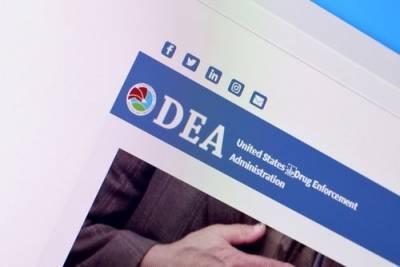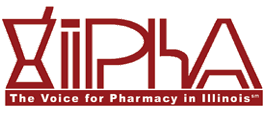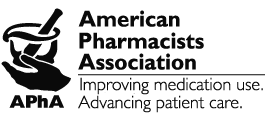Recent Blog Posts
UPDATE: What Is a Pharmacy Audit?
 Originally published: January 16, 2018 -- Updated: September 25, 2023
Originally published: January 16, 2018 -- Updated: September 25, 2023
Update: As described below, there are several types of audits that may be performed by pharmacy benefit managers (PBMs), and these audits may review a wide variety of records to address prescriptions that have been filled and payments pharmacies have received from insurance companies. In recent years, virtual audits have become more common, and in these cases, auditors may require pharmacy personnel to provide a wide variety of documents and other information.
If an audit identifies any discrepancies related to prescription records, purchases of drugs, or claims submitted to insurance companies, insurance companies may claim that a pharmacy received improper payments, and they may seek to recoup these amounts. This may be done by requesting monetary payments from a pharmacy or withholding future payments for services provided to patients.
The Importance of Continuing Education for Licensed Professionals

Continuing education is a vital aspect of professional growth and development. It allows licensed professionals in Illinois to stay updated with the latest advancements, industry trends, and best practices in their respective fields. For lawyers, doctors, nurses, pharmacists, accountants, psychologists, physical therapists, or other licensed professionals, ongoing education plays a crucial role in maintaining competence and keeping up with the ever-evolving landscape. For many professions, continuing education is also a requirement for maintaining a professional license. If you have questions about how issues related to continuing education may affect your license, an attorney who is experienced in professional license defense can advise you of your rights and options.
Can Social Media Use Lead to Professional License Discipline?
 Social media has become an integral part of our daily lives. It allows us to connect with friends, share our thoughts and experiences, and stay up to date with current events. However, what many people may not realize is that their social media activity can have serious consequences, especially for professionals who hold licenses in regulated fields such as law or medicine. If you are potentially facing professional license discipline related to the use of social media, an attorney can help you understand your options.
Social media has become an integral part of our daily lives. It allows us to connect with friends, share our thoughts and experiences, and stay up to date with current events. However, what many people may not realize is that their social media activity can have serious consequences, especially for professionals who hold licenses in regulated fields such as law or medicine. If you are potentially facing professional license discipline related to the use of social media, an attorney can help you understand your options.
The Impact of Social Media on Professional Image
Your professional image is crucial when it comes to your career. As a licensed professional, you are expected to uphold certain standards of behavior both inside and outside of your workplace. This includes your presence on social media platforms. What you say or do online can reflect on your professionalism and affect your credibility within your field.
Can Substance Abuse Lead to Professional License Discipline?
 Substance abuse, including alcohol and drug addiction, can have serious consequences for individuals in various professions. In the state of Illinois, professional license holders are held to high standards of conduct and ethics. Engaging in substance abuse can not only jeopardize an individual's health, but it can also affect their ability to practice their chosen profession. Licensed professionals who struggle with substance abuse may need to take steps to address disciplinary action and ensure that they can keep working in their chosen profession, and they can do so with the help of an experienced attorney.
Substance abuse, including alcohol and drug addiction, can have serious consequences for individuals in various professions. In the state of Illinois, professional license holders are held to high standards of conduct and ethics. Engaging in substance abuse can not only jeopardize an individual's health, but it can also affect their ability to practice their chosen profession. Licensed professionals who struggle with substance abuse may need to take steps to address disciplinary action and ensure that they can keep working in their chosen profession, and they can do so with the help of an experienced attorney.
The Impact on Professional Licensing
Illinois has strict regulations regarding professional licensing, and these rules are meant to protect public safety. There are numerous licensing boards that oversee different professions, and they have the authority to impose disciplinary actions if professionals violate ethical guidelines or engage in misconduct such as substance abuse.
5 Common Ethical Dilemmas Faced by Professionals in Illinois
 In any profession, ethical dilemmas can arise that may test a person’s integrity and decision-making abilities. This is especially true for those working in professions that require licensure, such as doctors, lawyers, accountants, and engineers. While different licensing boards, such as the Illinois Medical Board or the Illinois Board of Clinical Psychologists and Social Workers, have their own set of rules and regulations governing professional conduct, they follow similar ethical principles.
In any profession, ethical dilemmas can arise that may test a person’s integrity and decision-making abilities. This is especially true for those working in professions that require licensure, such as doctors, lawyers, accountants, and engineers. While different licensing boards, such as the Illinois Medical Board or the Illinois Board of Clinical Psychologists and Social Workers, have their own set of rules and regulations governing professional conduct, they follow similar ethical principles.
Professionals who are accused of committing ethics violations may face disciplinary action, including the suspension or revocation of a professional license. The following are some common ethical dilemmas faced by professionals in various fields in Illinois:
Conflicts of Interest
A conflict of interest occurs when a professional's personal interests or relationships interfere with their duty to act in the best interests of their clients or patients. These conflicts can include situations where a professional stands to gain financially from a particular outcome or has personal relationships that may impair their objectivity. Professionals in Illinois must navigate conflicts carefully to avoid compromising their clients' best interests while adhering to the rules of professional conduct established by the applicable licensing board.
6 Mistakes That Can Lead to Professional License Discipline in Illinois
 As a licensed professional in the state of Illinois, it is crucial to understand that your professional license can be put at risk if you make certain mistakes or engage in misconduct. Disciplinary action against your license can have severe consequences, including the suspension or revocation of your license, fines, reprimands that could affect your reputation, and even criminal charges in some cases. By understanding the issues that could potentially lead to license discipline and responding to any complaints or concerns quickly and effectively, you can defend your license and ensure that you will be able to continue working in your chosen profession.
As a licensed professional in the state of Illinois, it is crucial to understand that your professional license can be put at risk if you make certain mistakes or engage in misconduct. Disciplinary action against your license can have severe consequences, including the suspension or revocation of your license, fines, reprimands that could affect your reputation, and even criminal charges in some cases. By understanding the issues that could potentially lead to license discipline and responding to any complaints or concerns quickly and effectively, you can defend your license and ensure that you will be able to continue working in your chosen profession.
The Importance of Maintaining Professionalism
Professionalism is key when it comes to maintaining good standing and avoiding disciplinary actions against your professional license. Here are some common mistakes that professionals in Illinois should avoid:
Potential Disciplinary Actions Against Professional Licenses in Illinois
 As a licensed professional in Illinois, it is important to understand the potential disciplinary actions that you may face if you are accused of engaging in unprofessional conduct, failing to meet the standards of your profession, or committing certain types of crimes. Whether you are a doctor, nurse, pharmacist, psychologist, dentist, chiropractor, real estate agent, lawyer, accountant, or any other licensed professional, the Illinois Department of Financial and Professional Regulation (IDFPR) has the authority to investigate and take disciplinary action if you are found to have violated the rules and regulations governing your profession. Depending on the circumstances of your case, multiple types of discipline may be possible.
As a licensed professional in Illinois, it is important to understand the potential disciplinary actions that you may face if you are accused of engaging in unprofessional conduct, failing to meet the standards of your profession, or committing certain types of crimes. Whether you are a doctor, nurse, pharmacist, psychologist, dentist, chiropractor, real estate agent, lawyer, accountant, or any other licensed professional, the Illinois Department of Financial and Professional Regulation (IDFPR) has the authority to investigate and take disciplinary action if you are found to have violated the rules and regulations governing your profession. Depending on the circumstances of your case, multiple types of discipline may be possible.
Will I Lose My Professional License if I Am Convicted of a Crime?
 As a licensed professional in Illinois, it is important to understand the potential consequences you may face following a criminal conviction. In addition to the penalties associated with a conviction, which may include jail time, fines, probation, or restitution, your professional reputation may be affected. To make matters worse, the Illinois Department of Financial and Professional Regulation may take disciplinary action against your professional license. Depending on the type of offense and the circumstances surrounding the crime, a conviction could result in the suspension or revocation of your professional license, or you may face other forms of discipline.
As a licensed professional in Illinois, it is important to understand the potential consequences you may face following a criminal conviction. In addition to the penalties associated with a conviction, which may include jail time, fines, probation, or restitution, your professional reputation may be affected. To make matters worse, the Illinois Department of Financial and Professional Regulation may take disciplinary action against your professional license. Depending on the type of offense and the circumstances surrounding the crime, a conviction could result in the suspension or revocation of your professional license, or you may face other forms of discipline.
Investigations by Professional Licensing Boards
Each profession in Illinois has its own licensing board or agency that oversees and regulates the licensing process. These boards have the authority to investigate complaints against license holders and take disciplinary action, including license suspension or revocation. Criminal convictions may trigger an investigation, and a board may review a case to determine whether the offense indicates that your ability to practice your profession has been affected.
How Can Psychologists Defend Against Disciplinary Action in Illinois?
 When facing disciplinary action as a psychologist in Illinois, it is crucial to understand your rights and take the necessary steps to defend your license. Disciplinary actions can have severe consequences, including the suspension or revocation of your license, which can effectively end your career. In these cases, it is essential to consult with a knowledgeable and experienced attorney who can defend against disciplinary action.
When facing disciplinary action as a psychologist in Illinois, it is crucial to understand your rights and take the necessary steps to defend your license. Disciplinary actions can have severe consequences, including the suspension or revocation of your license, which can effectively end your career. In these cases, it is essential to consult with a knowledgeable and experienced attorney who can defend against disciplinary action.
Understanding Disciplinary Actions for Psychologists
The Illinois Department of Financial and Professional Regulation (IDFPR) is responsible for regulating and disciplining licensed professionals, including psychologists. Disciplinary actions can arise from various issues, such as professional misconduct, substance abuse, criminal convictions, fraudulent billing practices, or breaches of patient confidentiality.
What Will Happen if My DEA Registration Is Suspended or Revoked?
 The Drug Enforcement Administration (DEA) is responsible for regulating the use of controlled substances in the United States. Doctors, pharmacists, and other medical professionals who work with controlled substances will be required to maintain a DEA registration. This registration is crucial, as it will allow a professional to prescribe, administer, or dispense certain medications to patients. Unfortunately, there are some situations where a medical provider may be accused of violating DEA regulations or other laws related to controlled substances, and this could lead to a suspension or revocation of a DEA registration. It is important for medical professionals to understand the potential consequences they may face in these situations and how they can defend against the loss of their controlled substance regulation.
The Drug Enforcement Administration (DEA) is responsible for regulating the use of controlled substances in the United States. Doctors, pharmacists, and other medical professionals who work with controlled substances will be required to maintain a DEA registration. This registration is crucial, as it will allow a professional to prescribe, administer, or dispense certain medications to patients. Unfortunately, there are some situations where a medical provider may be accused of violating DEA regulations or other laws related to controlled substances, and this could lead to a suspension or revocation of a DEA registration. It is important for medical professionals to understand the potential consequences they may face in these situations and how they can defend against the loss of their controlled substance regulation.
















